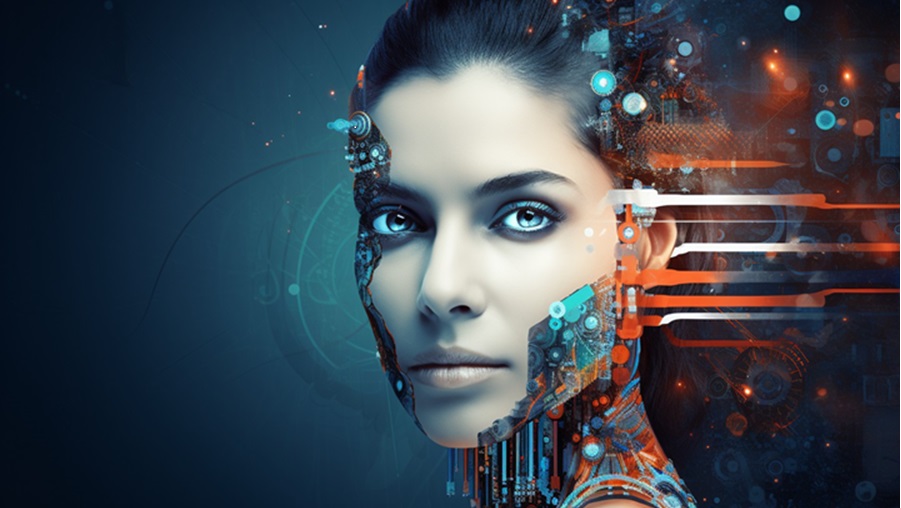AI for All: Unleashing Innovation with Generative AI
In an age where technology has become an integral part of our daily lives, the concept of digital public goods is gaining traction as a means to ensure equitable access to groundbreaking innovations. One such innovation that holds immense promise is Generative Artificial Intelligence (AI). The development of generative AI as a digital public good not only has the potential to revolutionize various sectors but can also address the ethical and societal implications associated with AI. In this article, we will explore the imperative of developing generative AI as a public good, emphasizing open-source principles, ethical considerations, education, and collaborative efforts to democratize access to this transformative technology.
Understanding Digital Public Goods
Digital public goods encompass a broad category of resources, tools, and technologies that are made freely available for the benefit of the public. The primary goal is to bridge the digital divide, ensuring that the benefits of technology are accessible to all, irrespective of geographical or socioeconomic factors. The concept extends beyond traditional public goods by recognizing the crucial role that digital infrastructure and technologies play in shaping our interconnected world.
Considering the potential of generative AI, it becomes clear that its impact extends far beyond individual applications. Generative AI can create, innovate, and generate content autonomously, making it a powerful tool for various industries, from creative arts to scientific research. By developing generative AI as a digital public good, it can democratize access to its capabilities, fostering innovation and addressing societal challenges on a global scale.
Open-Source Development
Central to the idea of generative AI as a digital public good is the commitment to open-source development. Open-source principles emphasize the transparency, collaboration, and accessibility of software and technologies. By making the source code, algorithms, and models of generative AI openly available, developers, researchers, and organizations from around the world can collaborate, contribute, and benefit from shared knowledge.
Open-source development not only accelerates the pace of innovation but also ensures that the technology is continuously refined and improved. The collective intelligence of a diverse community can identify and rectify biases, enhance the robustness of models, and adapt generative AI to a variety of applications. This collaborative effort serves as a cornerstone for democratizing access to cutting-edge AI technologies.
Ethical Considerations and Inclusivity
As we embark on the journey of developing generative AI as a digital public good, ethical considerations must be paramount. AI systems, including generative models, are not immune to biases, and the consequences of biased algorithms can perpetuate or exacerbate societal inequalities. Ensuring inclusivity, diversity, and fairness in AI models is essential to prevent reinforcing existing biases and to promote the widespread benefits of AI. Transparency in the development process is critical. Openly sharing the decision-making processes of AI models and making the data used in training publicly accessible can help mitigate biases and build trust in AI systems. Adopting ethical frameworks and guidelines for the development and deployment of generative AI ensures that the technology aligns with human values and respects fundamental rights.
Education and Capacity Building
Democratizing access to generative AI requires a concerted effort to educate and build the capacity of individuals and communities. Training programs, educational resources, and workshops play a crucial role in empowering people to harness the potential of AI for various applications. By providing accessible learning opportunities, we can bridge the knowledge gap and enable individuals from diverse backgrounds to actively participate in the development and use of generative AI.
Addressing Global Challenges
Generative AI has the potential to address some of the most pressing global challenges, ranging from climate change to healthcare. By making AI tools freely accessible as a digital public good, developers worldwide can collaborate on innovative solutions that have a positive impact on society. The democratization of generative AI empowers a global community to contribute to sustainable development goals, fostering the creation of applications that prioritize the greater good.
For instance, generative AI can be employed to analyse vast datasets related to climate patterns, helping scientists and researchers make more accurate predictions and develop strategies for mitigating the effects of climate change. Similarly, in healthcare, generative AI can assist in drug discovery, personalized medicine, and the development of diagnostic tools, leading to advancements that benefit people around the world.
Public-Private Partnerships
The development of generative AI as a digital public good requires collaboration between the public and private sectors. Governments, non-profit organizations, and private entities can work together to pool resources, share expertise, and create a framework that ensures responsible and widespread use of AI technologies. Public-private partnerships can play a crucial role in establishing ethical standards, promoting transparency, and addressing the societal impact of generative AI.
Ethical Data Handling Practices
Generative AI, by its nature, often involves the analysis and synthesis of large datasets. Ethical data handling practices encompass the responsible collection, storage, and utilization of user data. Developers must be transparent about the data they collect, explicitly seek user consent, and adhere to privacy regulations to ensure that personal information is treated with utmost respect.
Anonymous Data Aggregation
To strike a balance between harnessing the power of data and respecting user privacy, the practice of anonymous data aggregation can be employed. By aggregating and anonymizing data, developers can extract valuable insights without compromising individual privacy. This method ensures that the generative AI system learns from patterns in the data without retaining information that can be traced back to specific individuals.
End-to-End Encryption
Implementing robust end-to-end encryption is essential in securing the transmission of data between users and generative AI systems. This cryptographic technique ensures that data remains confidential and protected throughout its journey, preventing unauthorized access. By prioritizing end-to-end encryption, developers can instill confidence in users that their information is secure and not susceptible to interception.
Source

